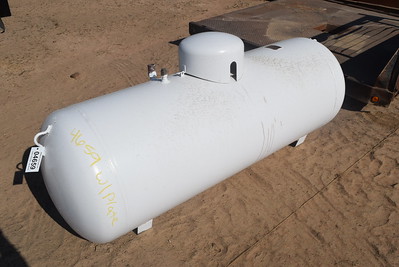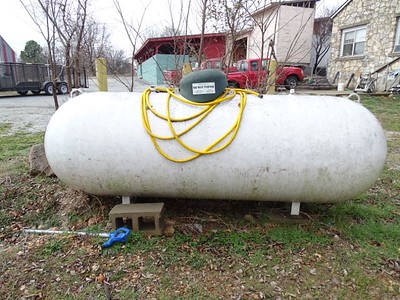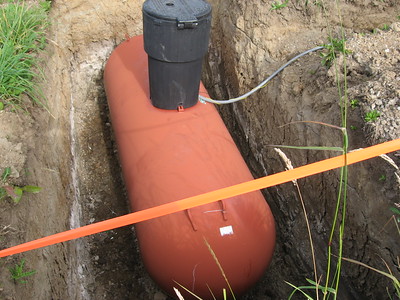
The cost to fill a 250-gallon propane tank varies, but it’s usually between $600 and $1,500. This price can change based on where you live and the time of year. In simple terms, filling your tank in the winter might cost more because that’s when more people use propane for heating. Also, if propane is in high demand or hard to get, the price can go up. Remember, these prices can change, so it’s a good idea to check with local suppliers for the most current rates.
To find the best propane prices, try these simple tips:
- Compare Different Providers: Look at a few different companies that sell propane. See who offers the best price.
- Talk About Prices: Don’t be shy to ask if they can lower the price or if there’s a better deal.
- Look for Deals: Some companies have special offers or lower prices if you join a loyalty program.
- Think About Quality, Not Just Price: Cheaper isn’t always better. Make sure the company is reliable and gives good service.
By doing these things, you can save money and still get good propane service.
Read related article: Is 250-Gallon Propane Tank Capacity Enough for a Home?
Breakdown of the Cost
Breaking down the costs of propane involves understanding a few different parts:
- Propane Price Per Gallon:
- This is the core cost. It’s like the price tag on each gallon of propane you buy.
- The price can change due to things like the global oil market, seasonal demand (like more use in winter), and local competition.
- Delivery Fees:
- Think of this as the fee for the convenience of having propane brought to your home or business.
- This can vary based on distance from the supplier and the amount of propane being delivered.
- Service Charges:
- These are additional fees that might come up. Examples include:
- Setup Fees: If you’re a new customer, there might be a charge for setting up your account or installing the tank.
- Emergency Delivery Fees: If you need propane urgently and off-schedule, this can cost more.
- Equipment Rental: If you don’t own your tank, you might have to pay to rent it.
- Maintenance Fees: Some companies charge for regular checks and maintenance of the propane tank.
- These are additional fees that might come up. Examples include:
- First-Time Fill-Up Costs:
- For first-time fill-ups, the costs can be higher due to:
- Initial setup or installation fees.
- Possible deposits for the tank or equipment.
- Higher service fees as you’re a new customer.
- For first-time fill-ups, the costs can be higher due to:
- Refill Costs:
- Refills are usually cheaper than first-time fill-ups because:
- You’re only paying for the propane and basic delivery.
- No additional setup or initial equipment fees.
- Refills are usually cheaper than first-time fill-ups because:
- Seasonal Variations:
- Prices can change with the seasons. Winter often has higher prices due to higher demand for heating.
- Bulk Pricing:
- Buying more propane at once can sometimes get you a lower per-gallon rate.
- This is like buying in bulk at a warehouse store to save money.
- Contracts and Pre-Buy Options:
- Some companies offer contracts where you agree to buy a certain amount of propane over time, which can lock in a lower price.
- Pre-buying lets you pay for propane in advance, potentially at a lower rate.
- Loyalty or Membership Discounts:
- Similar to frequent flyer miles, some companies reward regular customers with discounts.
- Government Fees and Taxes:
- Depending on where you live, there might be taxes or government fees on propane.
By understanding these components, you can better assess the costs and find ways to save money on propane. Always ask providers for a detailed breakdown of costs and inquire about any potential hidden fees.
Read related article: 250-Gallon Propane Tank Installation Cost (Ways to Save)
Ways to Save Money
Compare Prices
Comparing prices from multiple suppliers is a crucial step in finding the best deal on propane. The cost of propane can vary greatly depending on factors such as taxes, transportation costs, and regional demand, so it’s important to shop around and compare prices from multiple suppliers before making a purchase.
When comparing prices, be sure to consider the cost per gallon, any delivery fees, and any other fees that may be included in the cost. Don’t just focus on the price per gallon, as the delivery fees and other fees can add up quickly and significantly impact the total cost.
It is also important to consider the reputation of the supplier, their customer service, and their delivery options. Look for a supplier that is reputable, has good customer service, and offers delivery options that fit your needs.
Buy in Bulk
Buying propane in bulk is another way to save money. When you buy propane in bulk, you purchase a large quantity of propane at one time, typically at a lower cost per gallon than if you were to purchase smaller quantities. This can help you save money on propane, especially if you have a large propane tank and use a lot of propane throughout the year.
When buying propane in bulk, it is important to consider the cost per gallon, the delivery fees, and any other fees that may be included in the cost. Be sure to compare prices from multiple suppliers and consider factors such as the reputation of the company, the quality of its customer service, and its delivery options.
Sign up for Automatic Delivery
Signing up for automatic delivery can offer several benefits. First, it can save you time and effort by eliminating the need to call for a delivery. Second, it can help you avoid running out of propane, which can be especially important in the winter. Third, many suppliers offer discounts to customers who sign up for automatic delivery, so it can save you money as well. Before signing up, be sure to research and compare prices from multiple suppliers to find the best deal.
Opt for a Pre-Buy Program to Save Money
Opting for a pre-buy program is another way to save money on propane. A pre-buy program allows you to purchase propane in advance, often at a lower cost than the market price. The propane is then delivered to your tank when you need it, usually during the winter months when demand is high and prices are typically higher.
Pre-buy programs are designed to help customers save money by taking advantage of lower prices when they are available. However, it is important to carefully consider the terms of the pre-buy program, including the price per gallon, any penalties for early cancellation, and any restrictions on delivery.
Get into a Fixed-Price Propane Supply Agreement
Entering into a fixed-price propane supply agreement with a company can also help you save money on propane. A fixed-price supply agreement locks in the price per gallon of propane for a set period of time, usually a year or more. This can provide you with peace of mind and stability, as you won’t have to worry about fluctuating market prices affecting your cost of propane.
When entering into a fixed-price propane supply agreement, it is important to consider the terms of the agreement, including the price per gallon, the length of the agreement, and any penalties for early cancellation. Some agreements may also include restrictions on delivery, so be sure to read and understand the fine print before signing.
Read related article: How Long Will a 250-Gallon Propane Tank Last?
How to Refill my 250-Gallon Propane Tank?
If you have a 250-gallon propane tank that needs to be refilled, there are a few things you need to do in order to ensure that the process goes smoothly.
First, you need to find a propane supplier who can fill your tank. Next, you need to schedule a time for the refill. Finally, you need to make sure that your tank is properly prepared for the refill. To find a propane supplier, you can ask around at your local hardware store or home improvement center. You can also search online for “propane suppliers” in your area.
Once you’ve found a supplier, give them a call and ask about their process for refilling 250-gallon tanks. Make sure to ask about pricing as well. Once you’ve found a supplier and gotten pricing information, it’s time to schedule a time for the refill. Most propane companies will be able to accommodate your schedule, but it’s always best to call ahead and make sure.
Finally, you need to prepare your tank for the refill. This includes making sure that the valve is open and that there are no leaks in the tank. If everything is in order, the refill process should go smoothly and you’ll be back up and running in no time!
Where Can You Fill My Tank At A Much Cheaper Price?
To find a cheaper place to fill your propane tank, here are some tips:
- Compare Local Suppliers:
- Just like shopping for groceries, prices for propane can vary from one supplier to another. It’s a good idea to call around or check websites of different propane suppliers in your area to compare prices.
- Some suppliers might have lower overhead costs and can offer better rates.
- Look for Promotions:
- Propane suppliers often run promotions to attract new customers. This could include discounted prices for your first fill-up or other special offers.
- Keep an eye on local advertisements or check supplier websites regularly for any promotional deals.
- Refill Stations vs. Exchange:
- You usually have two options: refill your existing tank at a propane refill station, or exchange it for a pre-filled tank at a retailer.
- Refilling your tank can often be cheaper than exchanging it, especially if your tank still has some propane left.
- Membership Clubs or Bulk Stores:
- Stores like Costco or Sam’s Club, where you pay for a membership, often sell propane at lower prices than standard retail outlets.
- These stores can offer lower prices because they sell high volumes and have a broad customer base.
- Community Groups or Co-ops:
- In some areas, local community groups or cooperatives negotiate bulk purchase deals with propane suppliers and pass the savings on to their members.
- Joining such a group or co-op can give you access to lower prices, especially if you use propane regularly.
- Seasonal Pricing:
- Propane prices can fluctuate with the seasons. Demand is usually higher in the winter, which can drive up prices.
- Filling your tank in the spring or summer, when demand is lower, might get you a better rate.
- Ask for Recommendations:
- Sometimes, the best way to find a good deal is through word-of-mouth. Ask friends, family, or neighbors where they get their propane and if they’re happy with the price and service.
- Local community forums or social media groups can also be a good resource for recommendations.
Remember, while finding a lower price is important, ensure that the supplier is reputable and offers quality propane. Safety and reliability are just as crucial as saving a few dollars.
By following these tips, you may be able to find a much cheaper price for filling a 250-gallon propane tank. Keep in mind that the cost of propane can vary significantly from one location to another, so it is always a good idea to shop around and compare prices to get the best deal.
To Make a Conclusion
The cost of filling a 250-gallon propane tank can vary widely depending on several factors, including your location, the time of year, and market conditions.
While the price typically ranges from $600 to $1,500, it’s important to remember that additional costs such as delivery fees, service charges, and possible first-time setup fees can also influence the total amount you’ll pay.
To ensure you’re getting the best deal, it’s wise to compare prices from different suppliers, consider timing your fill-ups during off-peak seasons, and look into any available discounts or loyalty programs.
By being a savvy consumer and understanding the nuances of propane pricing, you can manage your propane needs effectively without breaking the bank. Remember, it’s not just about finding the cheapest price, but also ensuring you receive quality service and reliable propane supply.

Mike is an experienced propane technician with over 15 years of professional experience in the field. He has dedicated his career to helping customers with their propane needs, from installation to maintenance and repair. Together with Jeremy, he co-founded this website to provide useful information and guidance to customers seeking reliable propane services.







